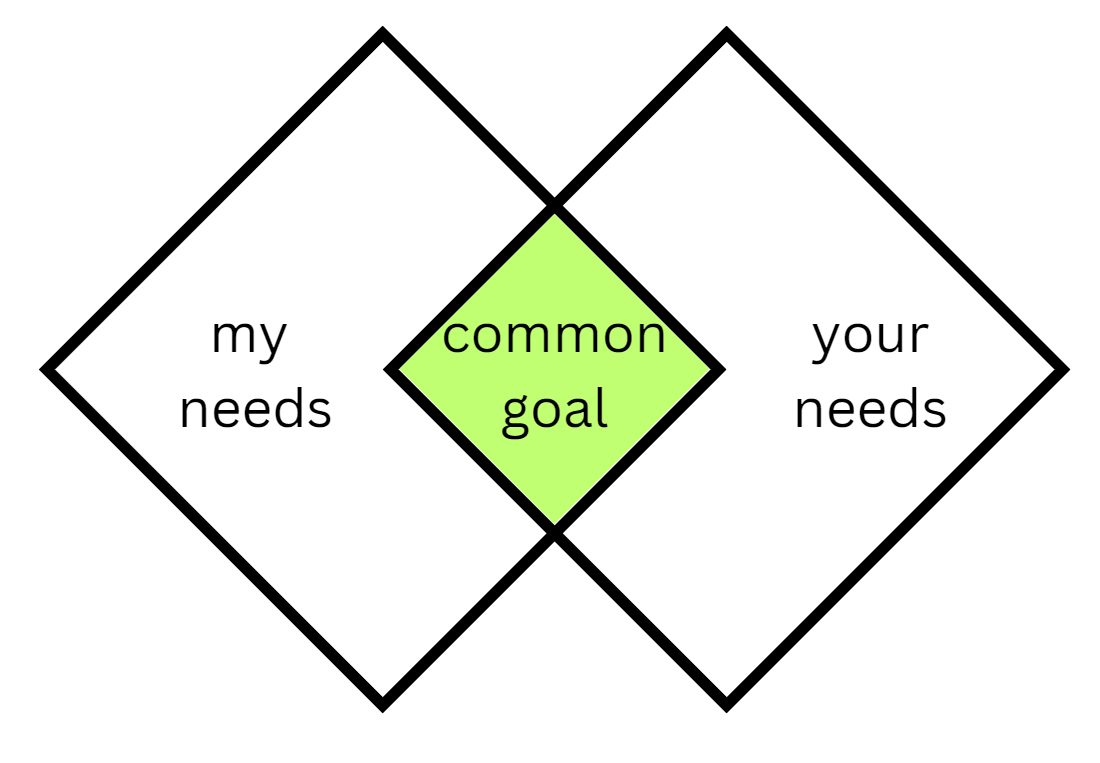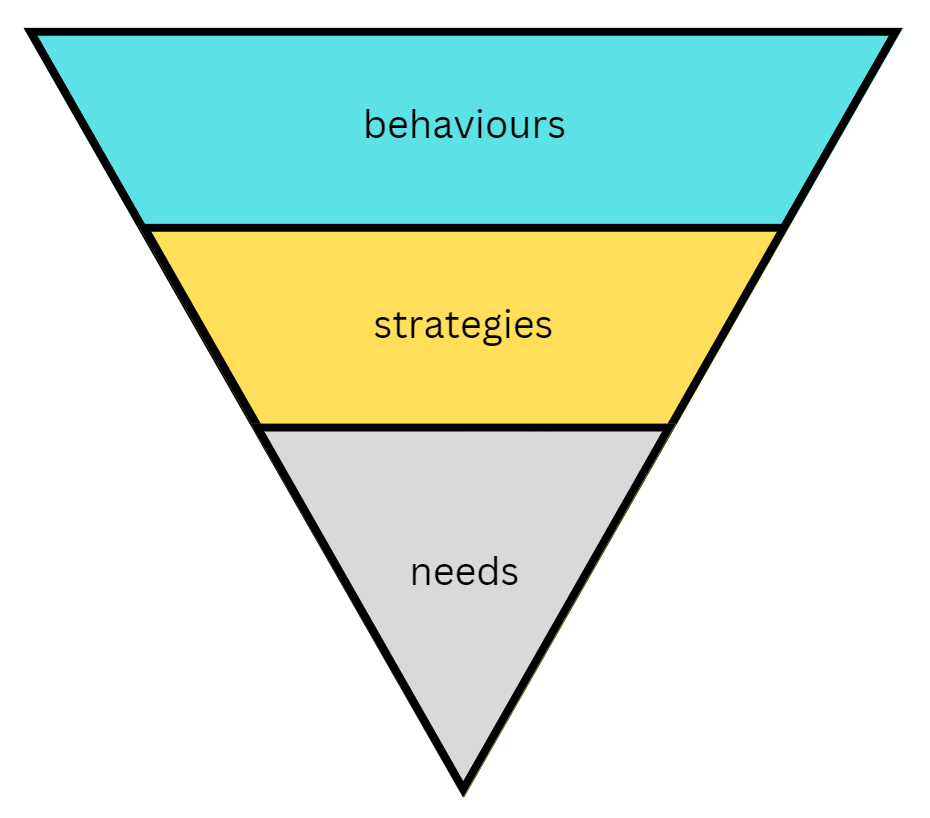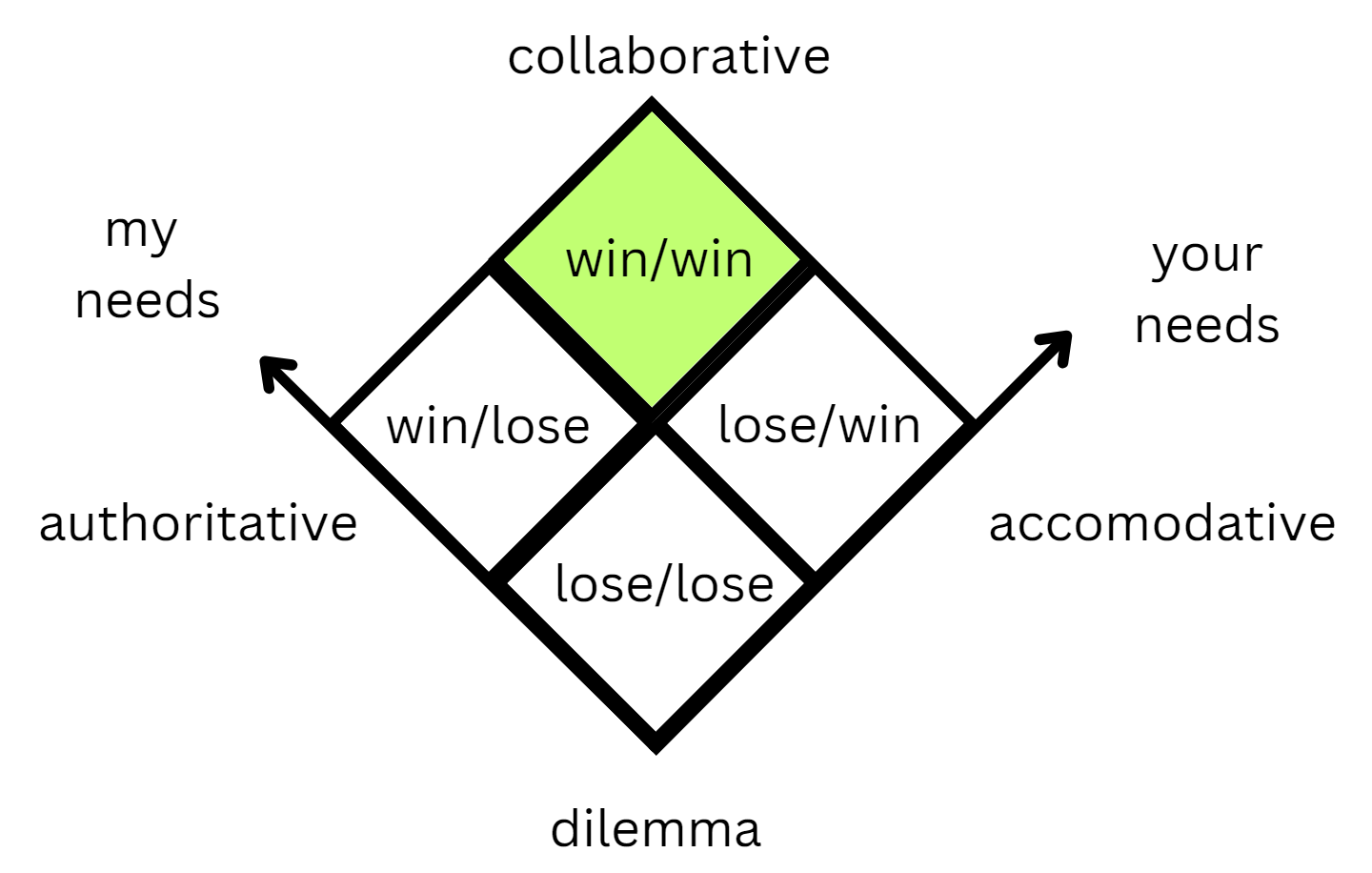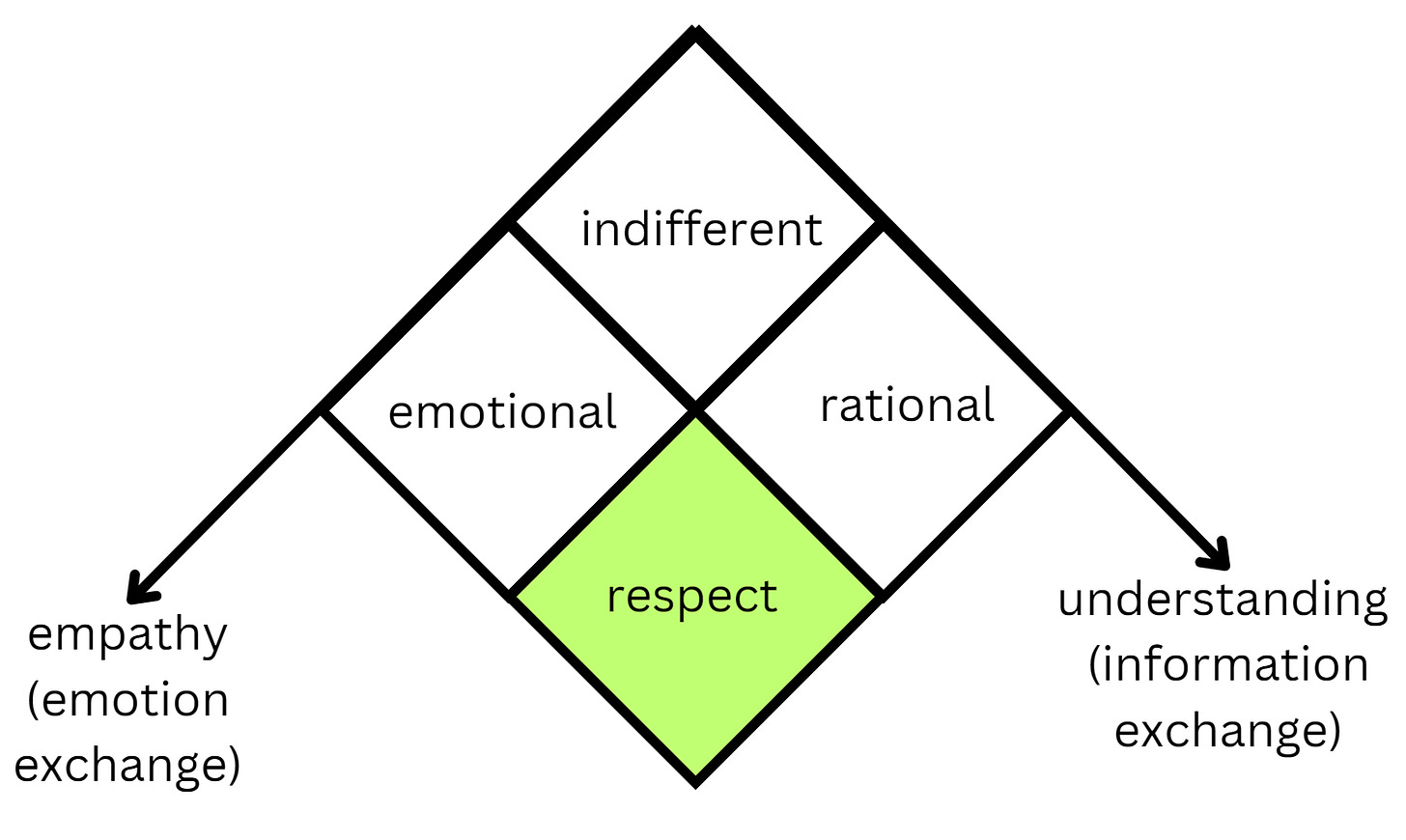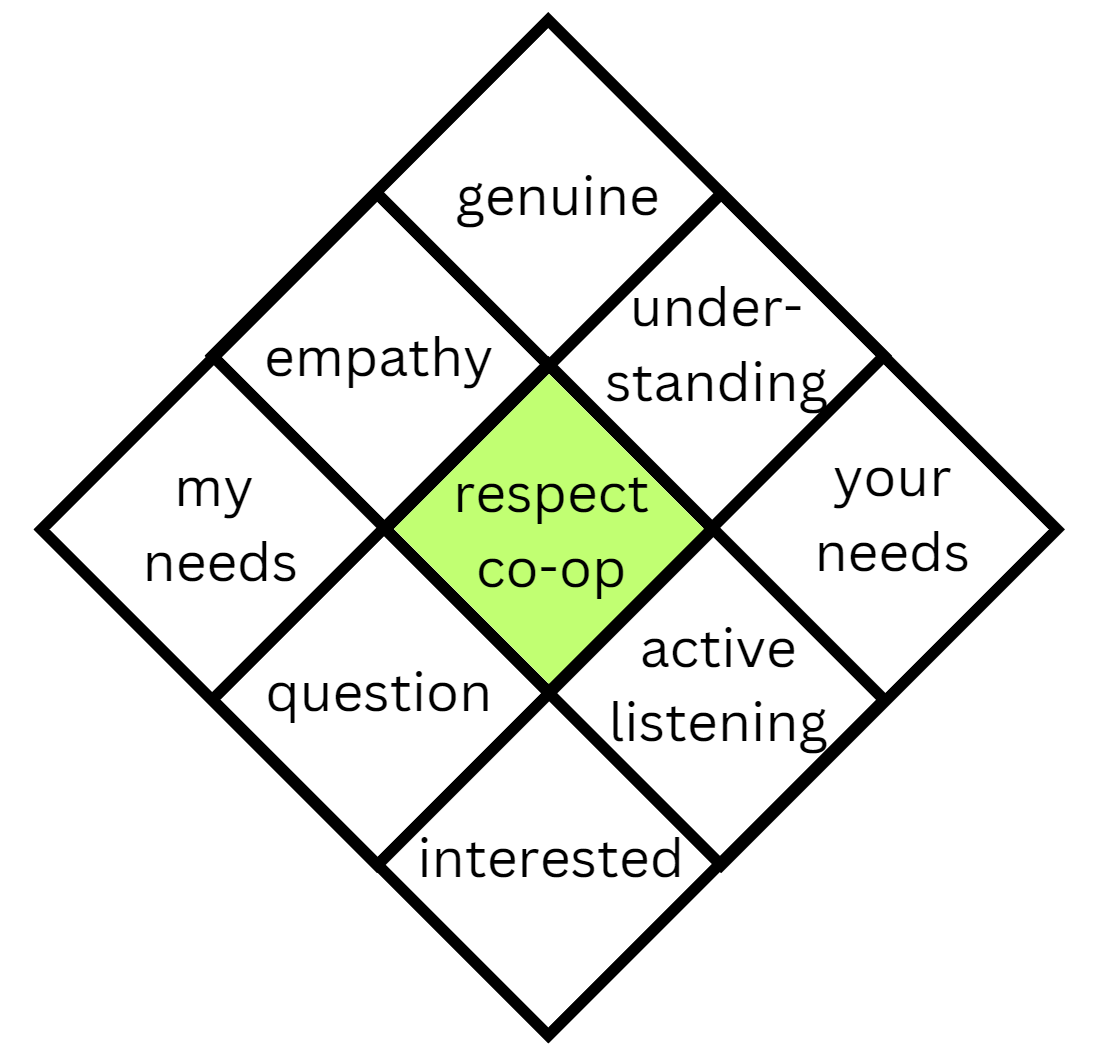I like the way Fan Deng(樊登) is making a successful business out of reading book summaries. Fan Deng wrote a few books in Chinese, and I don't know if there are any English-translated books.
The following visual diagrams summarize his 2020 book Duplicable Communication Skill (可复制的沟通力). The contents are nothing original, but Fan Deng made a good compilation of recommended frameworks for good communication skills for Chinese readers. I was attracted by the title “duplicable” (可复制的) as it aligns with V-Work’s Organic Learning, using the system as the foundation principle for replicable competency.
We must have a clear intention when engaging in any dialogue or asynchronous communication (e.g., writing emails). The underlying reason behind any argument is the unmet needs of both parties. When we want to get what we want (to satisfy our needs), we form a strategy (in most cases, the strategy is sub-conscious) and externalize our behaviors (actions and emotions).
Satisfying Needs
Many parents or leaders deal with the behavior or strategy layers and fail to address the actual needs. For example, a kid may use a rebellious strategy or a tear strategy to get her need for attention; the behavior could be a nuisance or not obedient. The adult may use rewards to trade a desired behavior to satisfy his own needs but fail to address the real needs of the child.
There are two good frameworks for us to understand ‘human needs’:
Tony Robbin’s 6 human needs (certainty, variety, significance, connection/love, growth, contribution)
Effective communication should aim for a win-win for both parties by satisfying mutual needs with a common goal. If we feel agitated or angry during a conversation, it is a signal that our needs are not met. Unfulfilled needs (e.g., certainty) will be reflected in external behavior as various fearful emotions (e.g., feeling insecure).
Respect and Trust
Fan Deng uses the computer's dual-core CPU as an analogy to the human brain. Humans have the capacity to manage information and emotions in parallel. We should build a trusting environment to have a respectful conversation. This allows us to see from the opponent’s perspective, hence allowing us to manage both our emotions and have a clear understanding of the information exchanged.
"Seek first to understand, and then to be understood." - Stephen R. Covey, Seven Habits of Highly Effective People
The book quoted a few non-verbal communication techniques often taught in Neuro-Linguistic Programming (NLP)
non-verbal communication outweighs spoken or written words. We can assess the opponent's state, hence gaining a better understanding of their emotions.
body language (cue of the eyes and facial micro-expressions, posture that reveal our state)
tonality
mirroring to build rapport
This book did not cover additional frameworks focusing on the methods we can use to convey precise information to another party. I think we can improve the understanding of information exchange by:
The Pyramid Principle of Communication - start with the core message or conclusion, then move down to the arguments and back by another layer of data
The hero journey storytelling method - starts with establishing the current reality, revealing the challenge, and the journey to overcome the hurdles and come up on top as a victor.
The staircase method breaks a complex concept into smaller building blocks, uses each block as a stepping stone, and ascends to the more complicated idea, step by step.
Respect and Co-operation
By combining the 3 diagrams above, we get the summary of the communication model.
Fan Deng shared a communication framework that could be useful to defuse aggressive or undesirable responses.
“I observed …. which make me feel …. because of my need for ….so I request …”
There are 4 parts to the statement above:
(1) observation, fact, or experience (not opinion, stereotype labeling, or judgemental)
(2) share your genuine feelings
(3) reveal your needs
(4) seek for feasible cooperation
I find this a helpful model for resolving conflict or facing a challenging conversation.
The book summarizes a few communication tips Fan Deng sourced from other books:
avoid ‘hostile’ communication styles that undermine respect and trust
blaming, criticizing, accusing, judging, labeling, complaining
interrogation (use coaching power question approach)
comparing, threatening
letting out ‘steam’ (pouring your negative emotions to others)
using communication frameworks in meetings and workshops
6 Thinking Hats
brainstorming
expand our vocabulary of feelings and emotions to label them accurately.
Emotion is the language our body is telling us if our needs are met, hence raising awareness (of ours and our opponent’s emotions and states)
avoid seeking understanding in any communication if we are in the wrong emotional state, and get the atmosphere to a conducive vibe before proceeding any further


